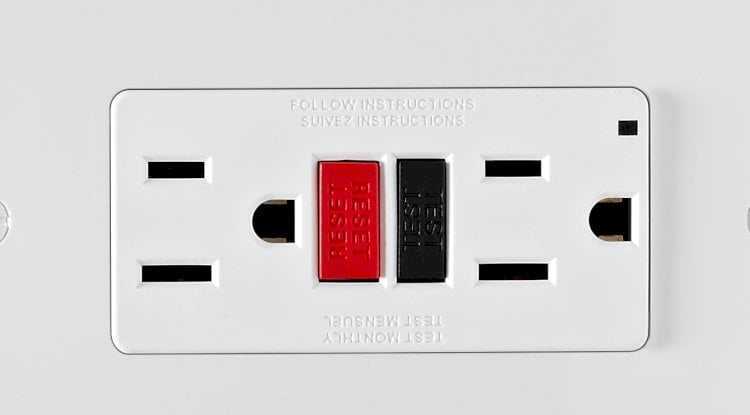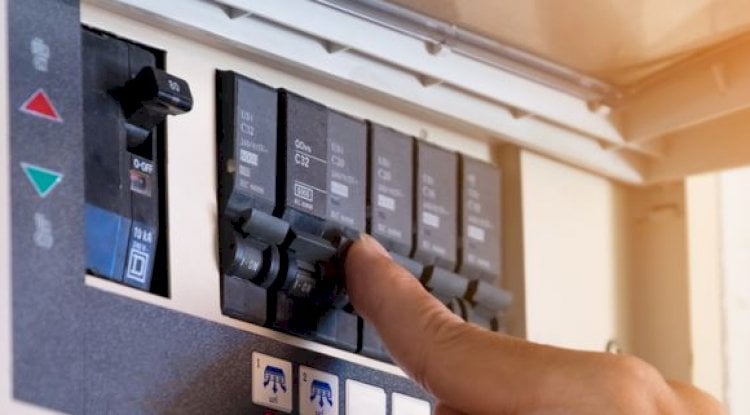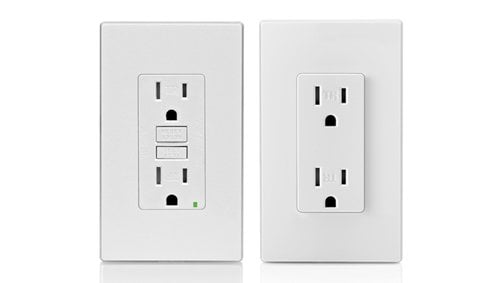Max Asked:
NEC now requires GFCI’s on refrigerators. Is there really a technical reason to put a GFCI on a refrigerator?
Our Answer:
excessively tripping the Ground-Fault Circuit-Interrupter (GFCI) breaker when these items are in normal use. It doesn’t take much of an imagination to understand the frustration of a home owner when they come home to find all the food in their refrigerator spoiled because of a GFCI tripping during normal operation. However, modern refrigerators do not typically have this problem. In fact, if you have a refrigerator built in the last 20 years or so, if it does trip the GFCI, it is probably more likely that there is a problem with the refrigerator than with the GFCI circuit.
A GFCI (Ground-Fault Circuit-Interrupter) uses technology to sense the difference in amperage between the hot and the neutral lines, typically between 4 to 6 mA.
While the typical circuit-breaker (Over Current Protection Device) is tripped by amperage levels exceeding its ratings (typically 15 or 20 Amps), GFCI systems provide protection at very small current differentials (typically 5 mA). While it is not known exactly how many lives have been saved since the introduction of GFCI protection in the 1971 National Electrical Code, there is no doubt that the number of electrocutions in America has dropped dramatically ever since.
The GFCI requirements for refrigerators are governed primarily under NEC Article 210.8 and 210.52, and had little to no change from the 2008 version of the code to the 2011 version. Here is the breakdown governing refrigerators and GFCI protection (according to the NEC 2011 Handbook):
- All commercial buildings/kitchens are required to have GFCI for refrigerators. See NEC 210.8(B)(2).
- In a Dwelling Unit (house or apartment) refrigerators located inside the kitchen do NOT have to have a GFCI. See 210.8(A)(6), Exhibit 210.13, 210.52(B)(1), 210.52(B)(2), 210.52(B)(3), and Exhibit 210.28. If the circuit feeding the refrigerator outlet is branched to any other outlet, it must be a 20-A circuit. If the circuit feeding the refrigerator outlet is a dedicated individual circuit, than it can be either 15-A or 20-A.
- In a garage or an unfinished basement of a Dwelling unit, the refrigerator must have a GFCI circuit. In fact ALL outlets must be GFCI in garages and unfinished basements. See 210.8(A)(2) and Exhibit 210.10.
It is important to note that while the text of the code clearly mandates GFCI protection for all receptacle outlets in garages and unfinished basements, the Exhibits use the word “Freezer” when showing GFCI protection (see exhibits 210.10 and 210.12). This has been the source of confusion and has led some to believe that refrigerators are exempt from the GFCI requirement, and that freezers require it. E&S Grounding Solutions does not interpret the code this way.
Our understanding of the NEC is that both freezers and refrigerators must have GFCI protection in every situation other than in a kitchen of a dwelling unit. This is almost certainly a grandfathered hold out and will not stay in the code for much longer. The bottom line is that we should all prepare for the day when EVERY receptacle outlet is not only GFCI, but AFCI (Arc-Fault Circuit-Interrupter) as well.
Now as far as your question goes “Is there a technical reason for installing a GFCI on a refrigerator?”, the answer is Yes.
There are many scenarios where a hazardous electrical fault could be occurring on a refrigerator that did not trip a regular circuit breaker, which could have been stopped by a GFCI circuit. The water lines feeding the refrigerator break, worn down electrical insulation, moisture accumulation, and any number of other electrical malfunctions could lead to such a scenario. There is no doubt that your family is safer with a GFCI on their refrigerator, than they are without it.
The National Electrical Code requires that GFCI systems be grounded to ensure that a low-impedance fault path exists back to the OCPD. However, the GFCI portion of the system will function even without a ground wire; they are simply more susceptible to accidental breaker trips and sensing problems.
The Engineering Experts at E&S Grounding Solutions
Let's Talk! Schedule a FREE Phone Consultation Today.
Wherever you're located, learn how good a fit we are for your project.







